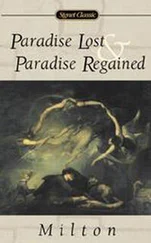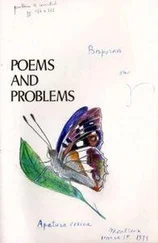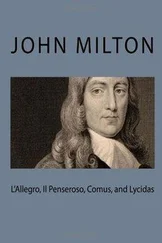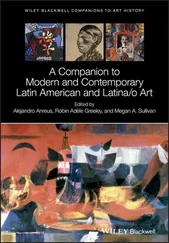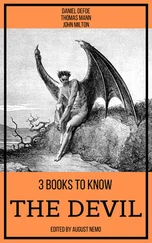Aut Deus, aut vacui certe mens tertia coeli
Pertua secreto guttura serpit agens;
Serpit agens, facilisque docet mortalia corda
Sensim immortali assuescere posse sono.
Quod si cuncta quidem Deus est, per cunctaque fusus,
In te una loquitur, caetera mutus habet.
Another to the Same.
Another Leonora [89] Leonora d'Este, supposed lover of Torquato Tasso.
once inspir'd
Tasso, with fatal love to frenzy fir'd,
But how much happier, liv'd he now, were he,
Pierced with whatever pangs for love of Thee!
Since could he hear that heavenly voice of thine,
With Adriana's lute [90] Adriana Baroni, who accompanied her daughter on the lute.
of sound divine,
Fiercer than Pentheus' [91] A mad Theban king.
tho' his eye might roll,
Or idiot apathy benumb his soul,
You still, with medicinal sounds, might cheer
His senses wandering in a blind career;
And sweetly breathing thro' his wounded breast,
Charm, with soul–soothing song, his thoughts to rest.
Another to the Same.
Naples, too credulous, ah! boast no more
The sweet–voiced Siren buried on thy shore,
That, when Parthenope [92] One of the Sirens.
deceas'd, she gave
Her sacred dust to a Chalcidic [93] From Chalcis, whence the Greek colonies of South Italy came.
grave,
For still she lives, but has exchanged the hoarse
Pausilipo for Tiber's placid course,
Where, idol of all Rome, she now in chains,
Of magic song both Gods and Men detains.
The Fable of the Peasant and his Landlord. [94] Added to the Elegies in the 1673 edition.
A Peasant to his lord yearly court,
Presenting pippins of so rich a sort
That he, displeased to have a part alone,
Removed the tree, that all might be his own.
The tree, too old to travel, though before
So fruitful, withered, and would yield no more.
The squire, perceiving all his labour void,
Cursed his own pains, so foolishly employed,
And "Oh," he cried, "that I had lived content
With tribute, small indeed, but kindly meant!
My avarice has expensive proved to me,
Has cost me both my pippins and my tree."
Part 2
Poems in Various Metres
I
On the Death of the Vice-chancellor, a Physician [95] Dr. John Goslyn, Regius Professor of Medicine at Cambridge. He died on the 21st October, 1626.
Learn ye nations of the earth
The condition of your birth,
Now be taught your feeble state,
Know, that all must yield to Fate!
If the mournful Rover, Death,
Say but once–resign your breath–
Vainly of escape you dream,
You must pass the Stygian stream.
Could the stoutest overcome
Death's assault, and baffle Doom,
Hercules had both withstood
Undiseas'd by Nessus' blood. [96] A centaur whom Hercules shot with a poisoned arrow. Hercules was later poisoned by the centaur's blood–stained robe, which he was induced to put on.
Ne'er had Hector press'd the plain
By a trick of Pallas slain,
Nor the Chief to Jove allied [97] Sarpedon. See Homer (Il. xvi, 477–491).
By Achilles' phantom died.
Could enchantments life prolong,
Circe, saved by magic song,
Still had liv'd, and equal skill
Had preserv'd Medea still. [98] Circe and Medea were enchantresses.
Dwelt in herbs and drugs a pow'r
To avert Man's destin'd hour,
Learn'd Machaon [99] Son of Esculapius. He was a healer to the Greeks during the siege of Troy. See Homer (Il. xi, 514).
should have known
Doubtless to avert his own.
Chiron had survived the smart
Of the Hydra–tainted dart, [100] The centaur Chiron was killed by Hercules's poisoned arrows.
And Jove's bolt had been with ease
Foil'd by Asclepiades. [101] Esculapius. He was killed by Jove's lightning for having saved too many from death.
Thou too, Sage! of whom forlorn
Helicon and Cirrha mourn,
Still had'st filled thy princely place,
Regent of the gowned race,
Had'st advanc'd to higher fame
Still, thy much–ennobled name,
Nor in Charon's skiff explored
The Tartarean gulph abhorr'd.
But resentful Proserpine,
Jealous of thy skill divine,
Snapping short thy vital thread
Thee too number'd with the Dead.
Wise and good! untroubled be
The green turf that covers thee,
Thence in gay profusion grow
All the sweetest flow'rs that blow!
Pluto's Consort bid thee rest!
Oeacus pronounce thee blest!
To her home thy shade consign,
Make Elysium ever thine!
II
On the Fifth of November - Anno Aetates 17
Am pius extrema veniens Jacobus ab arcto
Teucrigenas populos, lateque patentia regna
Albionum tenuit, jamque inviolabile foedus
Sceptra Caledoniis conjunxerat Anglica Scotis:
Pacificusque novo felix divesque sedebat
In solio, occultique doli securus & hostis:
Cum ferus ignifluo regnans Acheronte tyrannus,
Eumenidum pater, aethereo vagus exul Olympo,
Forte per immensum terrarum erraverat orbem,
Dinumerans sceleris socios, vernasque fideles,
Participes regni post funera moesta futuros;
Hic tempestates medio ciet aere diras,
Illic unanimes odium struit inter amicos,
Armat & invictas in mutua viscera gentes;
Regnaque olivifera vertit florentia pace,
Et quoscunque videt purae virtutis amantes,
Hos cupit adjicere imperio, fraudumque magister
Tentat inaccessum sceleri corrumpere pectus,
Insidiasque locat tacitas, cassesque latentes
Tendit, ut incautos rapiat, seu Caspia Tigris
Insequitur trepidam deserta per avia praedam
Nocte sub illuni, & somno nictantibus astris.
Talibus infestat populos Summanus & urbes
Cinctus caeruleae fumanti turbine flammae.
Jamque fluentisonis albentia rupibus arva
Apparent, & terra Deo dilecta marino,
Cui nomen dederat quondam Neptunia proles
Amphitryoniaden qui non dubitavit atrocem
Aequore tranato furiali poscere bello,
Ante expugnatae crudelia saecula Troiae.
At simul hanc opibusque & festa pace beatam
Aspicit, & pingues donis Cerealibus agros,
Quodque magis doluit, venerantem numina veri
Sancta Dei populum, tandem suspiria rupit
Tartareos ignes & luridum olentia sulphur.
Qualia Trinacria trux ab Jove clausus in Aetna
Efflat tabifico monstrosus ab ore Tiphoeus.
Ignescunt oculi, stridetque adamantinus ordo
Dentis, ut armorum fragor, ictaque cuspide cuspis.
Atque pererrato solum hoc lacrymabile mundo
Inveni, dixit, gens haec mihi sola rebellis,
Contemtrixque jugi, nostraque potentior arte.
Illa tamen, mea si quicquam tentamina possunt,
Non feret hoc impune diu, non ibit inulta,
Читать дальше

